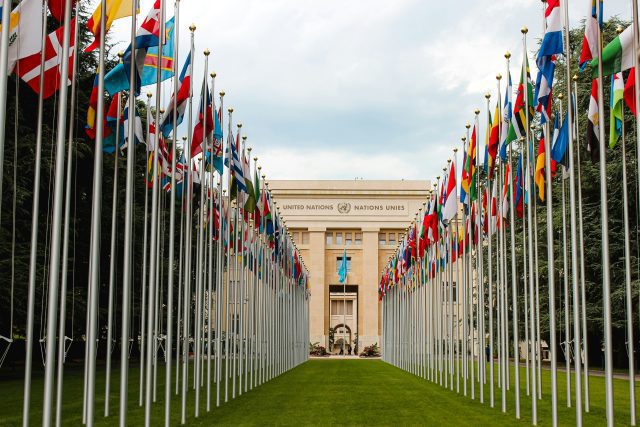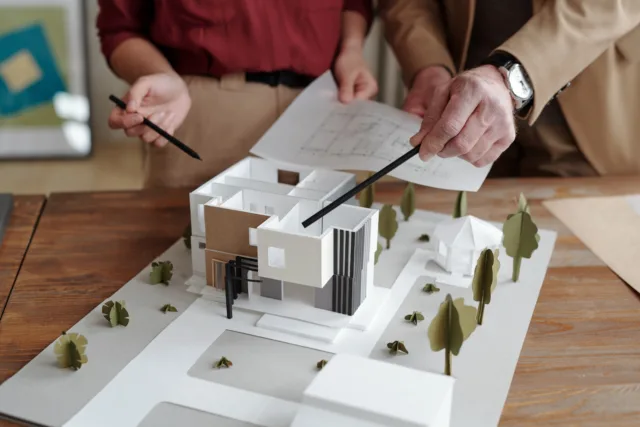
Real Estate Investment in Morocco’s Desert Regions (Merzouga & Zagora)
Real estate investment in Morocco’s desert regions, particularly in Merzouga and Zagora, is becoming an exciting frontier for investors seeking unique opportunities beyond the country’s traditional urban hubs. While Marrakech, Casablanca, and Rabat continue to dominate the market, Morocco’s southeastern deserts are quietly drawing attention due to their growing tourism, cultural appeal, and untapped potential for sustainable hospitality projects. This article explores why these areas are gaining momentum, what types of properties perform well, and how investors can approach this niche market responsibly while maximizing returns.
Why Consider Morocco’s Desert Regions for Real Estate Investment
The deserts of Morocco, especially around Merzouga and Zagora, are internationally known for their mesmerizing landscapes, golden sand dunes, and traditional Berber culture. These regions offer an experience that contrasts sharply with the bustle of cities like Marrakech. For investors, this uniqueness translates into a growing demand for accommodations and retreats that blend comfort with authenticity. Tourism data from recent years shows a steady rise in desert excursions, camel treks, and eco-lodges, fueled by international travelers seeking off-the-beaten-path destinations.
Another factor driving interest in real estate investment in Morocco’s desert regions is the Moroccan government’s emphasis on sustainable tourism development. Initiatives such as improved road infrastructure, renewable energy projects, and regional marketing campaigns are making Merzouga and Zagora more accessible than ever. With desert festivals, adventure tourism, and wellness retreats gaining traction, investors have an opportunity to establish boutique accommodations, glamping resorts, and experiential lodges that align with global travel trends.
Moreover, property prices in these areas remain significantly lower than in coastal or urban markets. For entrepreneurs looking to create eco-responsible lodgings or second homes with a strong rental appeal, early entry into the desert real estate market can offer a competitive edge before large-scale commercial projects dominate the landscape.
Understanding the Market Dynamics in Merzouga and Zagora
Before purchasing property in Merzouga or Zagora, investors should study local market dynamics to identify where demand is concentrated and which property formats thrive. Merzouga, famed for the Erg Chebbi dunes, is a hotspot for camel safaris, 4×4 adventures, and star-gazing camps. As such, there’s strong interest in luxury desert camps, boutique riads, and small eco-lodges that cater to visitors seeking authentic yet comfortable stays.
Zagora, on the other hand, has a more tranquil character. Known as the “Gateway to the Sahara,” it attracts travelers looking for palm-filled oases, ksar (fortified village) tours, and yoga or wellness retreats. Investors in Zagora may consider buying or developing guesthouses, eco-resorts, or renovated kasbahs that integrate sustainable architecture with cultural experiences. Rental yields can be attractive, particularly during peak tourist seasons from October to April when desert temperatures are pleasant.
The short-term rental market is also expanding, with platforms like Airbnb showcasing an increasing number of listings in both areas. Properties that offer privacy, scenic views, and added services such as guided tours or traditional meals tend to outperform standard accommodations. Investors should explore how their offerings can stand out, whether through eco-friendly features like solar power or curated cultural experiences such as music nights or desert cooking classes.
Types of Properties That Perform Well in Morocco’s Desert Real Estate Market
Investing in Morocco’s desert regions requires an understanding of which property types align with visitor expectations and market trends. Here are some promising formats:
- Luxury Desert Camps: High-end camps equipped with en-suite bathrooms, Wi-Fi, and private dining areas appeal to travelers who want adventure without sacrificing comfort. Many investors create glamping-style setups with renewable energy sources and bespoke décor reflecting Berber traditions.
- Boutique Riads and Guesthouses: Renovating traditional riads or kasbahs into boutique stays is a popular route. Guests appreciate authentic architecture, local craftsmanship, and immersive hospitality.
- Eco-Lodges: Eco-conscious tourism is booming, and desert lodges that use natural materials, solar panels, and water-saving systems can attract environmentally minded travelers while reducing operational costs.
- Wellness and Retreat Centers: Desert landscapes provide a serene backdrop for yoga retreats, meditation centers, and wellness getaways. Properties combining open-air studios with comfortable guest rooms can generate steady bookings.
- Private Villas and Second Homes: Although less common, some investors develop private villas for affluent clients seeking exclusivity and year-round sunshine. These properties can also function as seasonal rentals during peak demand.
When choosing between these options, location is key. Properties with direct dune access in Merzouga or panoramic views of palm groves in Zagora have clear advantages. Equally important is ensuring accessibility for guests, proximity to main roads, secure parking, and reliable utilities are essential for attracting repeat business and positive reviews.
Legal and Regulatory Considerations for Desert Property Investment
As with any real estate investment in Morocco, understanding the legal landscape is vital before committing funds in Merzouga or Zagora. Morocco’s property laws are generally favorable to foreign investors, allowing freehold ownership for most real estate categories. However, agricultural or protected land near dunes or oases may require additional permits or lease agreements rather than outright purchase.
Working with an experienced notary (learn more about notaries in Moroccan real estate) is crucial to verify land titles, clarify usage rights, and register properties with local authorities. Investors should also ensure compliance with zoning rules, particularly if planning hospitality ventures such as camps or guesthouses. Environmental regulations are another consideration, as authorities encourage sustainable practices to preserve fragile desert ecosystems.
Additionally, financing options for desert investments may differ from urban projects. While Moroccan banks and international lenders provide mortgages for residential and commercial properties, they may require higher down payments or detailed business plans for tourism-oriented developments in remote regions. Conducting thorough due diligence and securing funding arrangements early can prevent delays during the acquisition process.
Financial Insights and ROI Potential in Morocco’s Desert Real Estate
Understanding the financial potential of real estate investment in Morocco’s desert regions is essential for building a sustainable business model. Desert properties often benefit from a favorable cost-to-revenue ratio compared to urban markets, especially if designed for short-term rentals or boutique hospitality. Initial acquisition costs for land or unfinished structures in Merzouga and Zagora are typically lower than those in Marrakech or Agadir, making it easier to secure an attractive entry price.
Revenue streams depend largely on tourism. Well-managed desert camps can generate high nightly rates during peak seasons, particularly when bundled with guided excursions, camel rides, or private dinners under the stars. Boutique riads or eco-lodges often command steady occupancy when marketed effectively on global platforms such as Airbnb, Booking.com, and specialized eco-tourism portals. A carefully structured operation can achieve gross yields of 8–12% annually, with room for growth as the regions become more prominent in Morocco’s travel landscape.
Investors should also consider long-term appreciation. As infrastructure projects progress, such as improved roads connecting Merzouga to Erfoud or Zagora to Ouarzazate, property values are likely to rise. Buying early and maintaining high standards can position owners to benefit from resale opportunities or joint ventures with larger hospitality brands looking to expand into Morocco’s deserts. Strategic partnerships with local tour operators, transport companies, or cultural cooperatives can further diversify revenue and increase occupancy.
Challenges and Risks to Address Before Investing
Despite its exciting prospects, real estate investment in Morocco’s desert regions carries unique challenges. Harsh environmental conditions, such as sandstorms, high temperatures, and limited water resources, require resilient construction methods and ongoing maintenance. Eco-friendly building solutions, like adobe or rammed-earth walls and solar-powered utilities, can reduce operational costs while respecting the natural surroundings.
Another concern is seasonality as visitor numbers in Merzouga and Zagora peak from autumn to spring, while summer can see reduced bookings due to intense heat. Investors should plan for seasonal fluctuations by diversifying offerings: wellness retreats, cultural workshops, and stargazing events can attract niche travelers year-round. Having a contingency budget for off-peak periods is vital to maintaining healthy cash flow.
Infrastructure limitations also demand careful planning since access roads may become challenging during rare but heavy rains, and utilities such as electricity or internet may require investment in solar panels, generators, or satellite connections. Collaborating with local authorities or private service providers can help ensure reliable infrastructure for guests and staff alike.
Finally, investors must remain vigilant about market competition and overdevelopment. While Merzouga and Zagora are still in early growth stages, excessive or poorly planned projects could harm the environment and reduce profitability. Conducting thorough feasibility studies and adopting sustainable practices will help protect both your investment and the region’s ecological integrity.
Sustainability and Cultural Integration in Desert Property Projects
One of the strongest selling points of real estate investment in Morocco’s desert regions is the chance to combine profitability with sustainability and cultural enrichment. Eco-conscious travelers increasingly seek authentic experiences that respect local traditions and landscapes. Investors can meet this demand by prioritizing environmentally friendly construction and fostering meaningful connections with Berber communities.
Using locally sourced materials such as stone, clay, and palm wood not only reduces environmental impact but also enhances the aesthetic appeal of properties. Solar energy systems, water recycling units, and energy-efficient appliances can minimize utility expenses while aligning with Morocco’s commitment to green development. Many successful operators integrate traditional hospitality, mint tea ceremonies, storytelling evenings, or guided craft workshops, into their guest offerings, enriching the visitor experience and supporting local artisans.
Partnerships with cooperatives and community projects add further value. For example, collaborating with women’s weaving groups or desert guides can create additional income streams for residents while strengthening your property’s reputation for responsible tourism. Such initiatives resonate with socially conscious travelers and position your investment as a positive force in the region’s socio-economic fabric.
Marketing Strategies for Desert Properties
Attracting guests to properties in Merzouga and Zagora and other desert regions requires a clear marketing strategy. High-quality photography showcasing sweeping dunes, tranquil oases, and immersive guest experiences is essential for standing out online. Listings on major booking platforms should highlight your property’s proximity to key attractions such as Erg Chebbi, Draa Valley, or the Tinfou dunes. Emphasizing features like sustainability credentials, cultural activities, or private terraces overlooking the desert can entice target audiences.
Leveraging social media is equally important. Instagram and TikTok audiences are drawn to visually striking desert landscapes, making them powerful tools for reaching potential visitors. Collaborating with travel influencers or eco-tourism bloggers can boost exposure and enhance your property’s credibility. Meanwhile, a dedicated website with search engine optimization (SEO) ensures your desert accommodation ranks well for terms like “luxury desert camp in Merzouga” or “eco-lodge in Zagora.”
Offline strategies also have merit. Partnering with local travel agencies, adventure tour companies, and event organizers can expand your reach. Desert weddings, photography workshops, and corporate retreats are emerging niches, offering lucrative opportunities for property owners who provide tailored packages and personalized services.
Conclusion: Unlocking the Potential of Morocco’s Desert Real Estate
Real estate investment in Morocco’s desert regions offers an inspiring mix of adventure, cultural immersion, and financial opportunity. With careful research, sustainable practices, and strategic marketing, investors can tap into the growing appeal of Merzouga and Zagora as world-class desert destinations. By choosing the right property type, respecting local traditions, and addressing environmental and logistical challenges, you can position your project as a benchmark for responsible and profitable development in Morocco’s southeastern landscapes.
Whether you are considering a boutique riad, an eco-lodge, or a luxury desert camp, now is an excellent time to explore these regions before competition intensifies. Partnering with trusted local experts and staying attuned to government initiatives will help you navigate this emerging sector with confidence. As tourism continues to expand, those who combine vision with respect for the desert’s delicate ecosystem will reap the rewards of a truly unique investment journey.
Interested in tailored advice on investing in Morocco’s desert real estate? Contact our team today to discuss opportunities in Merzouga, Zagora, and beyond.




Leave a Reply